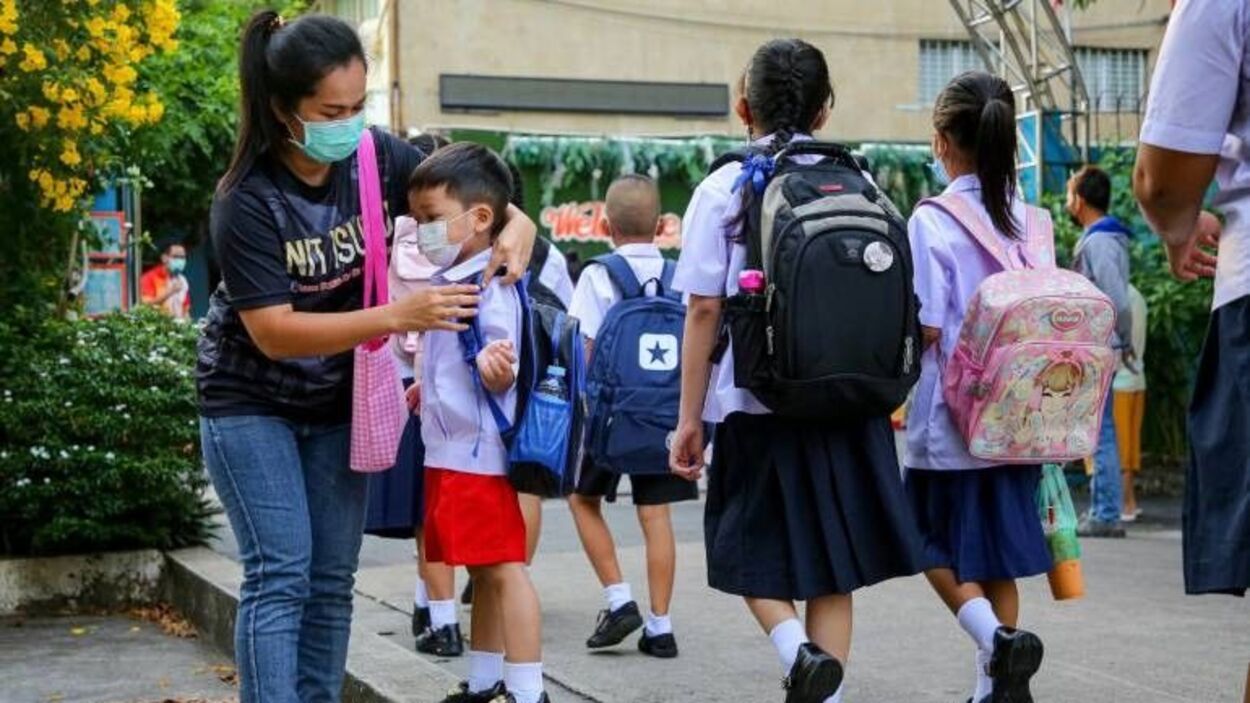Thailand’s Education Ministry is rolling out a new literacy-focused curriculum at 4,400 public schools nationwide starting later this month, aiming to shift early education towards skill-based learning—but the initiative is raising concerns over its rushed implementation.

The new curriculum, set to launch in selected kindergartens and early primary levels (Prathom 1-3), replaces the long-standing subject-based system with a broader focus on reading, writing, numeracy, and basic life skills. It is designed by the Office of the Basic Education Commission (Obec) and is based on international best practices adapted for the Thai context.
Obec Secretary-General Thanu Wongchinda explained that the curriculum is intended to promote lifelong learning and student potential. It introduces a more integrated teaching model where traditional subjects are no longer taught as separate units but instead are blended into holistic lessons focused on literacy and functionality. Teachers are expected to take on a more facilitative role, guiding students through active learning processes.
One major change is the evaluation method. The familiar 0-4 GPA system will be replaced with a four-tier proficiency scale: beginner, developing, proficient, and expert. Online resources, academic support clinics, AI-powered planning tools, and teacher workshops have been introduced to support the transition.
However, the speed of the rollout has drawn criticism from educators and experts. Many teachers only received notice of the new curriculum in March, with initial training provided just a month before the semester’s start. Athapol Anunthavorasakul, a lecturer at Chulalongkorn University’s Faculty of Education, said the announcement came with little public engagement or preparation time. He described the effort as experimental and warned that schools and teachers may not be adequately equipped to handle the shift.
Athapol also expressed concern that Prathom 3 students might face inconsistencies if they return to the old curriculum in Prathom 4. He questioned why a previously piloted competency-based curriculum—tested in 184 schools—was not expanded instead, especially since it had undergone more structured evaluation and planning.
The Education Ministry’s decision stems from a resolution issued by the Basic Education Commission in October 2024. Obec Deputy Director Jaroonsri Jabthaisong said the new approach is aimed at cultivating functional literacy, covering areas such as healthcare, nature, self-care, and the arts, in addition to foundational academic skills.
Looking ahead, officials say the curriculum may be expanded to senior primary and secondary levels if the pilot program proves effective. Thanu has assured that students will be able to transfer smoothly between schools operating under different curricula.
Obec emphasized that the 4,400 participating schools—roughly 15% of the country’s public institutions—have volunteered for the pilot. Nevertheless, concerns persist among teachers and trainee educators, who fear being unprepared for a system they were not trained to implement. Complaints have also surfaced online about the workload and lack of clarity around expectations.
Among those voicing concern were various education experts and policy officials in attendance at recent workshops and consultation forums.


